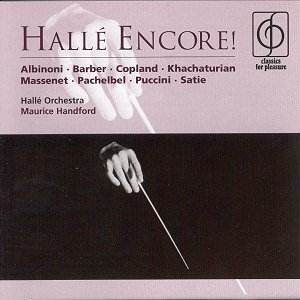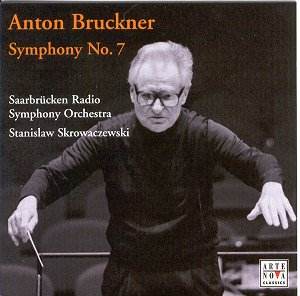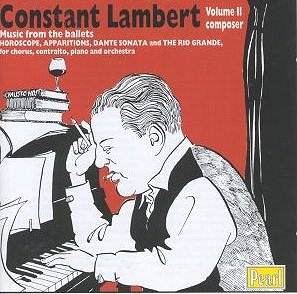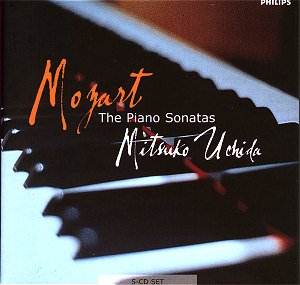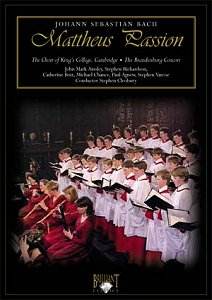 Composer: Johann Sebastian Bach
Composer: Johann Sebastian Bach
Works: St Matthew Passion
Performers: Rogers Covey-Crump (tenor, Evangelist), Michael George (bass, Jesus), Emma Kirkby (soprano), Michael Chance (alto), Martyn Hill (tenor), David Thomas (bass), King’s College Choir, Jesus College Choir, Brandenburg Consort, Roy Goodman (direction)
Recording: Recorded 1994, King’s College Chapel
Label: Brilliant Classics
Bach’s St Matthew Passion, first performed on Good Friday in 1727, remains a monumental testament to the composer’s genius and a cornerstone of the classical repertoire. Characterized by its profound emotional depth and intricate structural design, this work weaves a tapestry of narrative and reflection through its dual choirs and orchestras. It is often regarded as the apex of Western musical expression, a synthesis of theological gravitas and musical complexity that has inspired countless performances and recordings since its rediscovery in the 19th century by Mendelssohn. This particular DVD recording, featuring the illustrious King’s College Choir and the Brandenburg Consort, presents the work in the evocative setting of King’s College Chapel, a venue steeped in musical history.
The performance, under the direction of Stephen Cleobury, showcases a blend of seasoned soloists and renowned choral forces. Rogers Covey-Crump’s portrayal of the Evangelist, while earnest, lacks the incisive clarity often associated with the role, particularly when set against the benchmark established by Peter Schreier. Covey-Crump’s diction occasionally falters, and his laid-back approach to the recitatives can dilute the dramatic urgency inherent in the text. In contrast, Michael George’s portrayal of Jesus is marked by a rich, resonant bass that conveys both authority and vulnerability, particularly in the poignant moments of Es ist vollbracht.
Emma Kirkby, a luminary of early music, delivers her arias with characteristic sensitivity. However, her use of vibrato in this performance is inconsistent, at times detracting from the melodic purity that is her signature. Notably, her rendition of Erbame dich—where she employs a more restrained vibrato—emerges as a standout moment, showcasing her ability to evoke profound pathos. Yet, comparisons to other interpretations, such as those by René Jacobs or Robin Blaze, reveal a competitive landscape where Kirkby’s performance, though lovely, does not reach the heights achieved by her peers.
The technical aspects of the recording warrant scrutiny. The sound engineering presents a challenge; the soloists often feel spatially dislocated from the ensemble, with the orchestral balance favoring a side that can confuse the listener. The perceptible hiss at the beginning of each section detracts from the overall experience, and the audio distribution, particularly when listened to in stereo, can lead to an unintentional focus on certain elements over others. Ideally, the DVD would benefit from a more refined sound mix that allows the dialogue between choir and orchestra to emerge organically, rather than feeling imposed by the recording’s spatial limitations.
Examining this performance through the lens of its historical context and its place within the pantheon of St Matthew Passion recordings highlights both its merits and shortcomings. While it captures the grandeur of Bach’s work, it does not quite achieve the seamless integration of vocal and instrumental forces that other recordings, such as those by Harnoncourt or Suzuki, have accomplished. This DVD serves as an interesting document of the piece’s ongoing interpretation but ultimately falls short of the high standards set by its most illustrious predecessors. The combination of a noble venue and a largely committed cast makes for a worthwhile viewing, yet the execution—both in performance and production—leaves room for improvement. The St Matthew Passion remains an unparalleled masterpiece, and while this rendition contributes to its legacy, it does not fully encapsulate its transcendent power.
